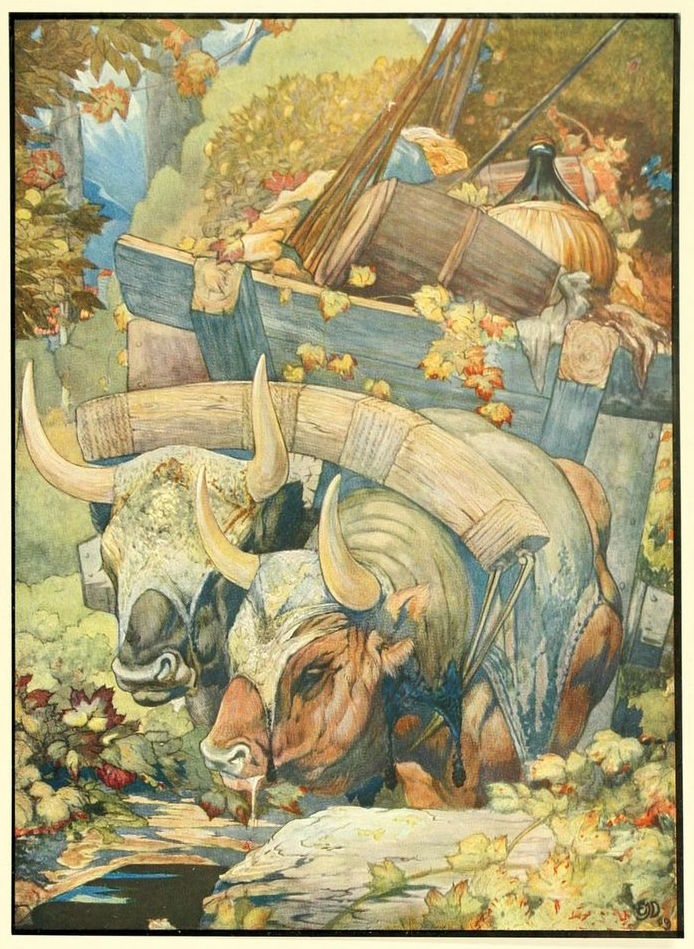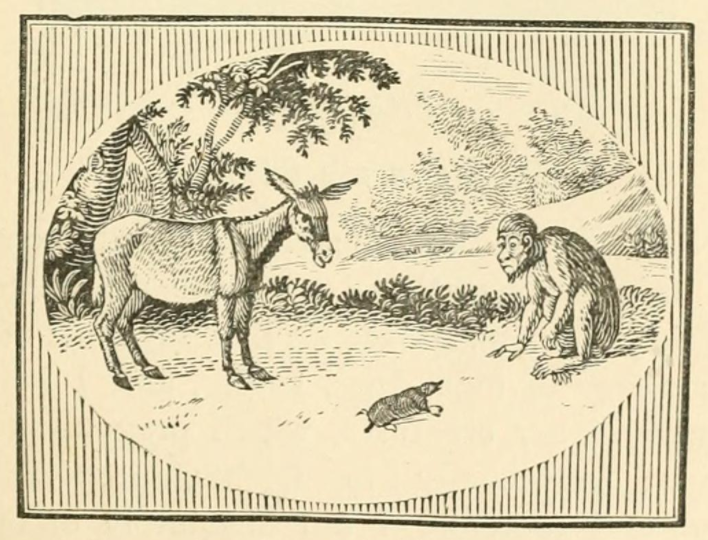96. Of the Beam and the Oxen Drawing It
An elm beam complained of the oxen, saying, "O ungrateful, I have fed you a long time with my leaves, but you draw me, your nourisher, through stones and dirt. To whom the oxen, "Our sighs and groans, and the goad with which we are pricked, are able to teach thee that unwilling we draw thee.
Moral. This fable teaches us that we should not be hot against them who hurt us not of their own accord.

97. Of the Eel Complaining that He Was Infested More than the Serpent
An eel asked the serpent why, seeing that they were alike and kinsfolk, men yet pursued him rather than her. To whom the serpent said, "Because seldom do they hurt me unpunished."
Moral. This fable shows that they are wont to be hurt less who revenge.
98. Of the Ass, the Ape, and the Mole
The ass, complaining that he wanted horns, but the ape, that a tail was wanting to him, the mole said, "Hold your peace, when you see me to be deprived of eyes."
Moral. This fable pertains to them who are not content with their own condition; who, if they considered the misfortunes of others, would bear their own with a more patient mind.

99. Of the Mariners Imploring the Help of the Saints
A certain mariner overtaken at sea with a sudden and dark tempest, the rest of his companions imploring the help of different saints, said, "Ye know not what ye ask, for, before that those saints can betake themselves to God for our deliverance, we shall be overwhelmed in this imminent storm. Fly therefore to him who, without the help of another, will be able to deliver us from so great evils." Therefore, the help of Almighty God being invoked, presently the storm ceased.
Moral. Do not fly to the weaker where the help of a more powerful may be had.
100. Of the Fishes Leaping out of the Frying-Pan into the Coals
Fishes yet alive were cooked in a frying-pan with scalding oil, one of which said, "O brethren, let us fly hence that we may not perish." Then all in like manner leaping out of the frying-pan fell upon the burning coals. Therefore affected with greater pain, they condemned the counsel which they had taken, saying, "By how much a more cruel death now do we perish!"
Moral. This fable admonishes us that we avoid the present dangers so that we do not fall into more grievous.
No comments:
Post a Comment
Comments are limited to Google accounts. You can also email me at laurakgibbs@gmail.com or find me at Twitter, @OnlineCrsLady.